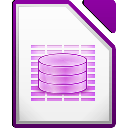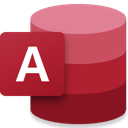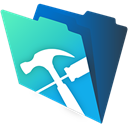Uncovering the Best Kexi Alternatives for Your Database Needs
Kexi, an open-source integrated data management application, has long been a go-to for many seeking a Microsoft Access, FileMaker, or Oracle Forms competitor. It excels at creating database schemas, inserting data, performing queries, and building custom forms. However, even excellent software like Kexi might not fit every user's specific requirements or preferences. Whether you're looking for different features, cross-platform compatibility, or simply exploring new options, finding a suitable Kexi alternative is crucial.
Top Kexi Alternatives
If Kexi isn't quite cutting it, or you're just curious about what else is out there, you're in luck. The market offers a robust selection of database management systems, each with unique strengths. We've compiled a list of top-tier alternatives that can serve as excellent replacements for Kexi, catering to various user needs from simple data organization to complex application development.

LibreOffice - Base
LibreOffice - Base is a powerful open-source database front-end that mirrors Microsoft Access's functionality. It supports a wide range of database engines and is available across multiple platforms including Free, Open Source, Mac, Windows, Linux, BSD, and PortableApps.com. Its features include Database, Database Management, Multiple languages, and Portable capabilities, making it a versatile Kexi alternative for those seeking a free and open-source solution with broad compatibility.

Microsoft Office Access
Microsoft Access, a staple of the Microsoft Office Suite, is a commercial database management system exclusively for Windows. It combines the relational Microsoft Jet Database Engine with an intuitive interface for data management. With features like Consistent UI, Data-management, Database Management, Real-time collaboration, and Web-Database capabilities, Microsoft Access is a robust Kexi alternative for users already invested in the Microsoft ecosystem and requiring advanced, commercial-grade tools.

Symphytum
Symphytum is a free and open-source personal database software designed for easy and intuitive data management without the complexity. It's available on Mac, Windows, and Linux. Key features include Portable, Cloud sync, Cross-platform, Import CSV data, Data export/import, Database, Database Management, Dropbox integration, and Sync with Dropbox, making it a great Kexi alternative for individuals and small teams seeking a user-friendly and portable solution with cloud synchronization.

FileMaker Pro Advanced
FileMaker Pro Advanced is a commercial, cross-platform relational database application available on Mac, Windows, Web, iPhone, and iPad. It integrates a database engine with a graphical user interface and security features, allowing users to build custom solutions. With features such as Database, Database Management, Export to CSV, File Searching, Offline Data Collection, and Reporting, FileMaker Pro Advanced stands out as a powerful Kexi alternative for those needing extensive cross-platform support and robust development capabilities.

My Visual Database
My Visual Database is a commercial Windows-only development environment for creating database applications without requiring programming skills. It simplifies the process of building simple to complex Windows applications. Its features include Database, IDE, Built-in editor, Bullet implementation, Database Management, Scripting, and WYSIWYG Support, making it an excellent Kexi alternative for users who want to visually design and deploy desktop database applications without writing code.
Tiki Trackers
Tiki Trackers is a free and open-source web-based database app builder that allows users to create online databases, web forms, and reports with zero coding. It's available as a Web and Self-Hosted solution. Its features, including Web-Based, Inbuilt validation, Data Analytics Stats, Flexible customizations, Form builder, No coding required, Reporting, and Web-Database, make Tiki Trackers a compelling Kexi alternative for those focused on building and managing data through a web interface.

HSQLDB
HSQLDB (Hyper Structured Query Language Database) is a free and open-source relational database management system written in Java. It provides a JDBC driver and supports a significant portion of SQL-92. Available on Mac, Windows, and Linux, HSQLDB is a solid Kexi alternative for developers and users who need a lightweight, open-source relational database for embedded or server-side applications.

4D
4D is a commercial relational database management system and IDE available on Mac and Windows. It provides integrated platforms for simplifying and accelerating the development and deployment of web and mobile applications. Key features include Database Management, Database Server, Extensible by Plugins/Extensions, Multiple languages, Web-Database, and Web Server, making 4D a powerful Kexi alternative for businesses and developers seeking a comprehensive platform for building data-driven applications.

Cellica Database
Cellica Database is a commercial solution that allows users to read and write to desktop databases wirelessly without programming changes, streamlining the process of going paperless. It's available across Windows, Android, iPhone, Android Tablet, and iPad. With features like Database and Database Management, Cellica Database is an excellent portable Kexi alternative for professionals who need mobile access and synchronization with their existing desktop databases.

Limbas
Limbas is a free and open-source web-based framework and frontend for business or enterprise database applications and processes, primarily for Linux and BSD. It offers front-end functionalities like a form designer and focuses on business process management. Features such as CRM, Database, DMS, and Multiple languages make Limbas a robust Kexi alternative for organizations looking for an open-source, web-centric solution for complex business data management.
With a diverse range of options from open-source powerhouses to commercial titans, finding the perfect Kexi alternative is entirely possible. Consider your platform needs, budget, desired features, and technical expertise to choose the solution that best empowers your data management and application development goals.